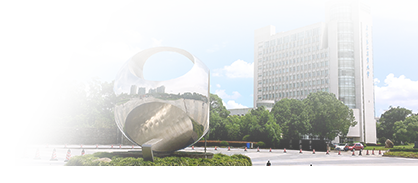The 19th International Conference on WasteManagement and Technology (ICWMT), which was co-hosted by Tsinghua University,the United Nations Environment Programme (UNEP) China Office, ZhejiangGongshang University, and the International Waste Working Group, among otherorganizations, was grandly held from May 18th to 20th, 2024, at the Bai Ma LakeInternational Convention and Exhibition Center in Hangzhou, Zhejiang. The ICWMTis an important platform organized by the Basel Convention Asia-PacificCoordination Center to expound scientific concepts, showcase advancedexperience, discuss environmental issues, and seek solutions. Since 2005, ithas been successfully held for nine consecutive editions, attracting a largenumber of high-level government officials, top international experts, andwell-known enterprises annually, which has become one of the most importantacademic and technical exchanges in the field of international solid waste.
The theme of this conference is"Building a 'Zero-Waste City' to Achieve Pollution Reduction and CarbonEmission Reduction", aiming to explore how solid waste management canpromote pollution reduction and carbon emission reduction to achieve the goalsof environmental protection and sustainable development. During the conference,participants from all sides have in-depth exchanges and discussions on thelatest waste treatment technologies, policy innovations, and theirimplementation effects globally.
The International Conference on WasteManagement and Technology has become one of the most important academic andtechnical exchanges in the field of international solid waste. This conferenceconsists of a three-day plenary session, an English parallel conference, and 45thematic sub-sessions.

As the convener of the sub-forum on"Bulk Solid Waste Pollution Reduction and Carbon Emission Reduction withSynergy and Efficiency Technology," Professor Zheng Chunli presided overthe meeting on May 20th and delivered a report titled "Key Technologiesand Applications for Bulk Solid Waste Pollution Reduction, Carbon EmissionReduction, and Ecological Restoration of Mining Areas". The reportdetailed how advanced technologies for processing and recycling bulk solidwaste can reduce environmental pollution and carbon emissions, while promotingthe recovery and restoration of the ecological environment in mining areas.Additionally, Professor Zheng Chunli emphasized the importance of synergistictechnologies in achieving environmental sustainability and shared a series ofsuccessful case studies that demonstrated the effectiveness and potential ofthese technologies in practical applications. The report sparked great interestamong the attending experts and scholars. Several experts in the field engagedin exchanges and discussions on the treatment technologies for bulk solid wasteand means of pollution reduction and carbon emission reduction. This providedvaluable insights and suggestions for future research directions andcooperation within the industry.

Experts at the sub-forum conductedcomprehensive and multi-level academic discussions on topics such as wasteresource utilization and environmental improvement, ecological restorationtechnology development, environmental monitoring and assessment techniques,solid waste management, and the practice of zero-waste cities. Professor TianSenlin from Kunming University of Science and Technology presented"Synergistic Transformation and Utilization of Multiphase Waste,"vividly illustrating methods to enhance waste resource recovery efficienciesand environmental benefits through technological innovation. Professor Bat fromZhejiang University introduced the research "Frequency DomainElectromagnetic Assessment of Barrier Performance in Copper Mine Waste RockPiles," evaluating the environmental impact and barrier effects of coppermine waste rock piles using advanced electromagnetic detection techniques.Professor Han Fenglan from the North Minzu University and Professor XiaoChunqiao from Wuhan University of Technology respectively shared their researchon ecological restoration of coal-based solid waste and soil improvement withphosphogypsum, discussing how they improve the environment and increaseresource utilization efficiency. Deputy Director Shi Haijia from the SouthChina Institute of Environmental Sciences of the Ministry of Ecology andEnvironment detailed the research on the implementation of pollution reductionand carbon emission reduction strategies in typical zero-waste cities,showcasing the environmental effects of these strategies. In addition, theconference also set up several interactive sessions to promote intellectualexchange and collaborative exploration among participants from different academicbackgrounds, jointly advancing the field of environmental protection andresource reuse.

